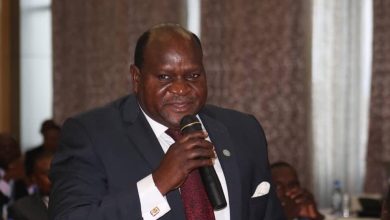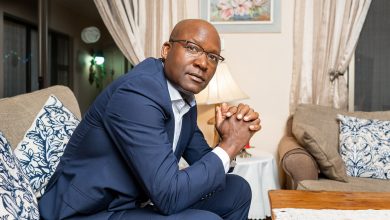Undule speaks about human rights, elections
Campaign for the September 16 2025, General Election is gathering momentum with some major political parties already having unveiled their manifestos. Our Staff Writer MICHAEL MMEYA caught up with seasoned human rights activist UNDULE MWAKASUNGULA to hear what he makes of this General Election from a human rights perspective. Excerpts.

Q. What is your general assessment of MEC’s preparations for this general election?
A. The Malawi Electoral Commission (MEC) has made commendable progress so far in preparing for the 2025 General Election. See how they managed the presidential nomination presentations. It showed how organised and prepared they are. But with just a month and days to voting, MEC must continue to build trust to ensure Malawians that all is well. Their neutrality and professionalism in handling the processes so far is central to a credible election.
Q. From a human rights perspective, what critical issues would you want the political parties to address for a better Malawi?
A. Political parties must focus on promoting the rights and dignity of all Malawians. This includes ensuring access to quality healthcare, education, clean water, energy, and better roads, especially for people in rural areas. They must support food security by investing more in agriculture and protecting land rights. Freedom of expression and media must be upheld, and our laws should be reformed if necessary to match the Constitution and international standards.
Q. How would you help Malawians understand the meaning of issue-based campaign?
A. An issue-based campaign shifts focus from personalities, tribalism, regionalism and slogans to policy ideas and solutions. It means voters should ask: What is this candidate’s plan on jobs, health, education, corruption, youth development, and human rights. etc? The issue-based campaign will encourage voters to critically analyse party manifestos and demand accountability even beyond the ballot box.
Q. Women, youths and people with disability are fighting for recognition in the next administration. How would you want parties to address wishes of these interest groups?
A. They must move from tokenism to real empowerment. For women, they should make the 50/50 campaign a reality by including more women on party lists, in positions, and by supporting women candidates with funding. For young people, parties need clear policies of empowerment. For persons with disabilities, parties should include their needs in policies, buildings, services, and leadership roles. These commitments should be clearly stated in party manifestos and followed through after elections. This is not a favour but a constitutional right and obligation.
Q. Some party promises are outright lies. How should a genuine campaign promise look like?
A. A genuine promise is realistic, measurable, time-bound and grounded in national resources. Promising something without showing how it will be done or funded is deceptive. Our leaders must respect the intelligence of voters by making promises that can be monitored, evaluated, and fulfilled for the betterment of our country. That is why civil society’s role is key, acting as watchdogs to track implementation of post-election promises.
Q. How do you assess the fight for human rights in the country’s plural politics?
A. Malawi has made progress in human rights, but challenges remain. The human rights space is now somehow politicised. Some individuals and groups have hijacked the space, using human rights to push political agendas and personal gains. Human rights work has been monetised, attracting many who are not truly committed to the cause. We must restore the integrity of the space, protect free expression, and association, but at the same time ensure that plural politics does not promote hidden political agendas in the name of human rights.
Q. How should the next government work with CSOs for a better Malawi?
A. CSOs are development partners and should not be viewed as enemies. From the 2011 experience, a government that does not work with CSOs will always be fragile. The next administration, therefore, must continue to engage CSOs in national affairs. No question, CSOs bring grassroots voices, independent analysis, and social innovation. And the next government should support more the capacity of CSOs to complement State efforts in national progress.
Q. What has been your worst experience in the fight for human rights in the country?
A. One of my worst experiences was during the July 20 2011 protests when 21 unarmed civilians were killed, by police under the Democratic Progressive Party government. This was a painful reminder that in the pursuit of national sanity, justice, human life can be lost when the State becomes intolerant and arrogant. That strengthened my resolve but, also, left permanent scars on victims’ families and our democracy. The fact that no one has been held accountable until now—when we know who is who—is deeply disappointing and a threat to our future.
Q What is your take on Kamuzu Banda’s warning that ‘matipate ndi nkhondo’ (democracy is war)?
A. Dr. Banda’s statement was a reflection of the fear that democracy brings chaos. He might have been right. Yes, we have seen democracy being noisy, violent and uncomfortable, but that is the beauty of freedom. The real war is on poverty, inequality, injustice, ignorance and corruption. Political parties must avoid using violence, hate speech, or tribalism as tools for winning votes. We must mature as a democracy and embrace peaceful coexistence regardless of our political differences.





